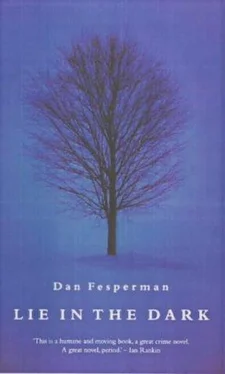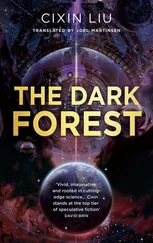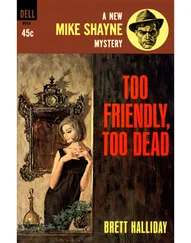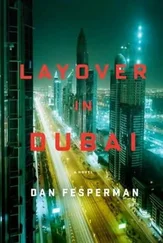Dan Fesperman - Lie in the Dark
Здесь есть возможность читать онлайн «Dan Fesperman - Lie in the Dark» весь текст электронной книги совершенно бесплатно (целиком полную версию без сокращений). В некоторых случаях можно слушать аудио, скачать через торрент в формате fb2 и присутствует краткое содержание. Жанр: Триллер, на английском языке. Описание произведения, (предисловие) а так же отзывы посетителей доступны на портале библиотеки ЛибКат.
- Название:Lie in the Dark
- Автор:
- Жанр:
- Год:неизвестен
- ISBN:нет данных
- Рейтинг книги:3 / 5. Голосов: 1
-
Избранное:Добавить в избранное
- Отзывы:
-
Ваша оценка:
- 60
- 1
- 2
- 3
- 4
- 5
Lie in the Dark: краткое содержание, описание и аннотация
Предлагаем к чтению аннотацию, описание, краткое содержание или предисловие (зависит от того, что написал сам автор книги «Lie in the Dark»). Если вы не нашли необходимую информацию о книге — напишите в комментариях, мы постараемся отыскать её.
Lie in the Dark — читать онлайн бесплатно полную книгу (весь текст) целиком
Ниже представлен текст книги, разбитый по страницам. Система сохранения места последней прочитанной страницы, позволяет с удобством читать онлайн бесплатно книгу «Lie in the Dark», без необходимости каждый раз заново искать на чём Вы остановились. Поставьте закладку, и сможете в любой момент перейти на страницу, на которой закончили чтение.
Интервал:
Закладка:
In approaching each day he had developed a keen sense of pace, of constant adjustment. Those who burned too brightly, he knew from watching, never lasted. They were the ones whose passions eventually led them running into free-fire zones, screaming either in madness or in a final outpouring of impotent rage.
But let your flame turn too low, fail to coax it along, and you ended up at the other extreme, spent and empty. You saw them in doorways, or hunched at the back of cafes, greasy-haired, staring vacantly, clothes in tatters. They never stopped retreating, ending up at the bottom of either a bottle or a grave.
Vlado was a Catholic, which meant he was classified as a Croat, something he’d never much thought about nor wanted to until the past two years. The precision of the label was questionable, given his mixed parentage. His father had been Muslim, his mother Catholic. She’d made sure he was baptized, though she’d never been much for church herself. Then she’d spent years dragging him off to religious instruction and holiday mass only to see her efforts go to waste.
Now, one’s ethnic background seemed to be the first thing everyone in an official position wanted to know. Your answer could get you killed in some places, promoted in others.
It was easy enough information to find out, listed right there on your identification papers. The ethnic labels were remnants of the various competing empires that had clashed in these hills for centuries. The Ottoman Turks had run the show for a while, bringing Islam and the sultan’s bureaucracy, only to run up against the Austrians, who brought Catholicism, impeccable record keeping, and streets laden with their layer-cake architecture.
From the east there had always been the Russians to worry about, sharing their Eastern Orthodox Christianity and Cyrillic alphabet with the Serbs. Then the Nazis had come along and overwhelmed everyone, linking up just long enough with nationalist Croats, the Ustasha, to lay waste to a few hundred thousand Serbs. Sometimes the Muslims had joined in the killing. Sometimes they’d been among the victims. But all sides were supposedly forgiven under the new mantle of the eventual victor, the postwar communist regime of Marshal Tito. Tito proceeded to hold the fractious sides together for nearly half a century, chiefly by acting as if no one had ever hated each other to begin with. He banished all talk of ethnic nationalism and mistrust, blithely announcing that henceforth brotherhood would prevail.
It almost worked.
But when Tito died, the ethnic zealots rediscovered their voices, and the Serbs crowed the loudest. Tales of past massacres, kept alive through the decades around family tables, emerged shiny and refurbished. The old fears were coaxed out of cellars and attics, renourished by a new diet of ethnic propaganda. Out came the old labels of mistrust. If you were a Croat, that must mean you were Ustasha. Any Serb was a Chetnik. A Muslim? No better than a Turk. When things began to fall apart, they collapsed in a hurry.
The Serbs, holding the bulk of the army, immediately and mercilessly seized the upper hand, and Tito’s ultimate failure was now evident in the lines of fire dividing the city. Standing on every surrounding hill were the Serb guns and trenches, and an army determined to squeeze Sarajevo until it became their own. They also held much of the ground within the city on the far bank of the Miljacka River, which curled through the town from east to west like a crooked spine.
Trapped along with Vlado on the north bank, in the old city center, were two hundred thousand people, mostly Muslim, occasionally Croat and very occasionally Serb. But, as with Vlado, the labels were often ambiguous. Mixed marriages accounted for a quarter of the population, which only further enraged the Serbs. Bohemian little Sarajevo, too clever for her own good, was paying the price for years of incestuous pleasure. Now the Serbs seemed bent on leveling the city if they couldn’t capture it, taking it apart brick by brick, person by person.
Vlado had gone his entire life without really considering what it meant to be a Catholic, and he saw no reason to start now. He’d stepped into a church only three times in the past twelve years, twice for funerals, and certainly not at all for his marriage, a civil ceremony in which he’d wed the Muslim daughter of a Serb mother.
His only other trip to church had been his most recent, to investigate the murder of a priest found dead in a confessional. A jealous husband had shot the priest after finding a boxful of passionate letters on parish stationery in his wife’s closet. The husband had walked into the booth, sat down, fired twice through the latticed partition, then turned the gun on himself. Vlado had felt cheated by the suicide. He’d always wanted to know if there had been any final conversation. He wondered if either side had offered absolution before the gun had passed judgement on both. Both had made adequate penance in the end, by Vlado’s way of thinking, never mind what the Church thought.
Had the gravediggers looked Vlado’s way on this morning they might also have seen a cup of coffee in his hand. At $20 a pound on a salary of one dollar a month, often paid in cigarettes, it was no small luxury. Such was the state of the local currency and the black market that ruled the city.
He smiled to himself with a slight flush of embarrassment recalling how he’d acquired the coffee the day before. He had begged for it, really. Not overtly, but in an obvious enough way, having learned how to go about such things.
A British journalist had telephoned for an interview and Vlado had gladly set a time. The subject was to be homicide in the city of death, as well as the ever present topic of the local corruption that was eating away at the city from within. It was a topic Vlado was forbidden to discuss, but that was beside the point. He knew as well as anyone that journalists, U.N. people, and other outsiders were always eager to ingratiate themselves with their bags full of booty-coffee, whiskey, cartons of Marlboros, sometimes even sugar. Who knows how generous they might be if you had information they wanted, whether you could supply it or not.
The items a journalist might offer could fetch Deutschemarks, dollars, friends and influence, or even a prostitute for an hour or so. The whores skulking by the gates of the French U.N. garrison could be had for a couple of packs of Marlboros, a price which the U.N. troops found quite reasonable. Some had given up smoking altogether.
The journalist had arrived right on time, a fleshy bundle of bustle and British good cheer, pinkening at the edges from his climb up the stairs, like a soft piece of fruit about to turn bad. He thrust his hand outward in greeting as he fairly shouted, “Toby Perkins, Evening Standard. Pleased to meet you.”
Vlado replied with a grave stare, spooning instant coffee into a steaming cup of water, then stirring the brown crystals with the reverence of an alchemist handling gold dust.
“My last cup,” he announced, holding it toward the reporter. “Please, take it.” It set just the right tone, Vlado thought. He inwardly congratulated himself, knowing from Toby’s thin smile and reddening cheeks that the rest would be easy.
And it was.
Toby immediately set down the mug and ducked toward his satchel, grunting and bending awkwardly from the bulk of an armored flak vest girdling his chest. Just about every outsider wore them, although locals tended to wonder what all the fuss was about. Why go to the trouble when you could still get your head blown off?
When Toby rose, his smile was wide and generous, and he held a one-pound jar of Nescafe. Now he was the millionaire with the shiny coin for the miserable waif. All that was left was to pat the boy on the head. But Vlado had no qualms of pride. He only wondered what else might be clinking around in the big bag.
Читать дальшеИнтервал:
Закладка:
Похожие книги на «Lie in the Dark»
Представляем Вашему вниманию похожие книги на «Lie in the Dark» списком для выбора. Мы отобрали схожую по названию и смыслу литературу в надежде предоставить читателям больше вариантов отыскать новые, интересные, ещё непрочитанные произведения.
Обсуждение, отзывы о книге «Lie in the Dark» и просто собственные мнения читателей. Оставьте ваши комментарии, напишите, что Вы думаете о произведении, его смысле или главных героях. Укажите что конкретно понравилось, а что нет, и почему Вы так считаете.












